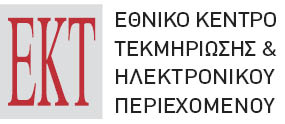Αντικείμενο της διατριβής είναι η διερεύνηση του ρόλου του Σχολικού Επαγγελματικού Προσανατολισμού, ως υποστηρικτικού θεσμού, στη διαδικασία λήψης εκπαιδευτικής και επαγγελματικής απόφασης των μαθητών. Η μελέτη του εν λόγω αντικειμένου εστιάζεται στη θεσμική ανάλυση του Σ.Ε.Π., έτσι όπως παρουσιάζεται στα κείμενα της εκπαιδευτικής πολιτικής, τόσο σε εθνικό όσο και σε υπερεθνικό επίπεδο και στην εμπειρική διερεύνηση των κοινωνικών αναπαραστάσεων των μαθητών σε σχέση με τους παράγοντες που επιδρούν στις εκπαιδευτικές και επαγγελματικές επιλογές. Δίνεται έμφαση στις προσδοκίες των μαθητών απέναντι στο θεσμό του Σ.Ε.Π. και στον τρόπο με τον οποίο τον αξιοποιούν στη διαδικασία λήψης εκπαιδευτικής και επαγγελματικής απόφασης.Τα ευρήματα που προκύπτουν τόσο από τη θεωρητική όσο και από την εμπειρική διερεύνηση σε ένα κατάλληλα επιλεγμένο δείγμα μαθητών της Γ’ Τάξης του Λυκείου οδηγούν στα εξής γενικά συμπεράσματα: Η ανάλυση της εκπαιδευτικής πολιτικής, έτσι όπως αποτυπώνεται στα θεσμικά κείμενα εθνικών και υπερεθνικών Αρχών, αναδεικνύει την ανάγκη συγκρότησης αποτελεσματικών υπηρεσιών Συμβουλευτικής και Επαγγελματικού Προσανατολισμού, με στόχο τη στήριξη του ατόμου στη διαχείριση της εκπαιδευτικής του πορείας και της ένταξής του στην αγορά εργασίας. Ωστόσο, σε επίπεδο ερμηνευτικής ανάλυσης του προταγματικού λόγου για τον ΣΕΠ, αλλά και σε επίπεδο εμπειρικών ερευνητικών δεδομένων, αναδεικνύεται ότι οι πολιτικές στρατηγικές στις οποίες στοχεύει ο ΣΕΠ δεν βρίσκουν ανταπόκριση στην ελληνική πραγματικότητα. Ο Σ.Ε.Π., ως υποστηρικτικός θεσμός στο πλαίσιο της Δευτεροβάθμιας Εκπαίδευσης, εξαντλεί τη δράση του στην απλή παροχή πληροφοριών, χωρίς να προτείνει τρόπους και στρατηγικές με στόχο την παροχή βοήθειας στο μαθητή κατά τη διαδικασία λήψης απόφασης. Οι εκπαιδευτικές και επαγγελματικές επιλογές των μαθητών επαφίενται κυρίως στην επίδραση της οικογένειας. Η διαμόρφωση των αναπαραστάσεων των μαθητών για τις εκπαιδευτικές και επαγγελματικές τους επιλογές αναδεικνύει τη διείσδυση της «Θεωρίας του Ανθρώπινου Κεφαλαίου» στα οργανωτικά στοιχεία των αναπαραστάσεών τους και καθιστά την οικογένεια καθοριστικό παράγοντα στην εκφορά της λογικής πάνω στην οποία ερείδεται η «Θεωρία του Ανθρώπινου Κεφαλαίου». Επιπλέον, στο σύγχρονο συγκείμενο της ελληνικής πραγματικότητας, το αναπαραστασιακό πλαίσιο των μαθητών διαπερνάται από αντιφάσεις, οι οποίες εκφράζουν ταυτόχρονα τη συμμόρφωση ενός «habitus» στις κοινωνικοπολιτισμικές καταβολές και στην ενεργητική δράση μιας ατομικής επιθυμίας. Σ’ αυτές τις αντιφάσεις αποκρυσταλλώνεται η τάση της υπό όρους υπέρβασης του «habitus» και της επιδίωξης της ατομικής επιθυμίας μέσω της οποίας το υποκείμενο προβάλλει τον εαυτό του όσον αφορά το εκπαιδευτικό και επαγγελματικό του μέλλον. Όπως αποτυπώνεται στην εμπειρική έρευνα, οι μαθητές, μέσα από το λόγο τους, καθίστανται «ενεργά» υποκείμενα με δυναμική πρόθεση να μην ακολουθήσουν τις επιβαλλόμενες από το «habitus» νόρμες, αλλά να τις επαναδιαμορφώσουν με βάση τις επιθυμίες τους.
The object of the dissertation is the investigation of the role of the Educational and Vocational Guidance, as a supportive institution, to the process of decision making by the students, regarding educational and vocational issues. The study of such an object focuses on the institutional analysis of the Educational and Vocational Guidance, as it is presented to the educational policy texts, in a national and international level, as well as on the experiential investigation of social representations of students in relation to the factors affecting their educational and vocational choices. There is emphasis given to the expectations of students from the institution of the Educational and Vocational Guidance, as well as to the way they use in the process of educational and vocational decision making.The results sourcing from theoretical and experiential investigation as well, within a diligently chosen sample of students of the Third Class of High School, lead to the following general conclusions:The analysis of the educational policy, as reflected to the institutional texts of national and international organisms shows the need of formation of effective Counselling and Vocational Guidance services, in order to support people to the management of their educational path and insertion to the labor market. However, in a level of interpreting analysis of the impulsive discourse for the Educational and Vocational Guidance, and also in a level of experiential investigation data, there is being revealed that political strategies to which Educational and Vocational Guidance is aiming, do not find response within Greek reality. Educational and Vocational Guidance, as a supportive institution within the framework of Secondary Education, ends up to a simple provision of information, without proposing manners and strategies aiming to the provision of help to the student during the process of decision making.Educational and vocational choices of the students are mainly based on the influence of family. The formation of representations of the students as regards their educational and vocational choices reveals the penetration of the "Human Capital Theory" to the organizational elements of their representations and converts family a decisive factor to the expression of the logic on which "Human Capital Theory" is based. In addition, within the actual situation of Greek reality, representations framework of students is being characterized by contradictions expressing at the same time the response of a "habitus" to the social and cultural roots and the energetic action of a personal wish. In the framework of these contradictions, the tendency to a conditional excess of the "habitus" and to the chase a personal wish is being revealed. Through such a wish, the person projects itself as regards their educational and vocational future. As it is being reflected to experiential investigation, students, through their discourse, are being converted to "active" subjects with a dynamic intention not to follow the norms imposed by the "habitus", but to reform them on the basis of their wishes.
 National Documentation Centre (EKT)
National Documentation Centre (EKT)



